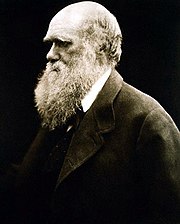Does "survival of the fittest" mean anything?
 The phrase "survival of the fittest" is sometimes used as a kind of metaphor to explain what is meant by "evolution by means of natural selection". The phrase was first applied not by a biologist but by an economist, Herbert Spencer. Darwin did incorporate this phrase into later editions of The Origin of Species, using it as a synonym for "natural selection."
The phrase "survival of the fittest" is sometimes used as a kind of metaphor to explain what is meant by "evolution by means of natural selection". The phrase was first applied not by a biologist but by an economist, Herbert Spencer. Darwin did incorporate this phrase into later editions of The Origin of Species, using it as a synonym for "natural selection."
The fittest individuals, however, do not survive. Even the fittest is mortal. The fittest die just as inevitably as the less fit. (Remember that "fit", at the time of Darwin and Spencer, usually meant “suited for” or “appropriate to”, not “robust in health”).
What do survive are the traits, genes, alleles, or heritable factors, and those of the more fit (better adapted to the environment or other selection pressures) survive in greater numbers than those of the less fit. That is what “fitness” means to a biologist.
The fittest, the individuals whose traits enable them to leave more progeny than those contemporaries less well suited for the current environment, have more grandchildren. Those grandchildren carry some of the heritable characteristics which made their fitter ancestors capable of begetting more offspring.
Being strong, happy, or living to a ripe old age might be interpreted by the layperson as representing higher fitness, compared to another individual who did not survive as long or who suffered more in life. But this has nothing to do with evolution or natural selection. Natural selection is only concerned with the effect of the environment on the flow of genes to following generations. The age or health of the surviving individuals means nothing if their genes are not represented in offspring.
Let me repeat this important point: Natural selection is not something that happens to individuals, but to populations. It causes changes in those populations (changes in the commonness, or frequency, of genes) across generations.
To the extent that it is a statement about evolution or natural selection, “The survival of the fittest” probably causes more confusion than clarification. If you interpret it to mean “the survival and propagation of the fittest genes”, then it is a restatement of evolution by natural selection, but it is still a tautology, true by its own definition. The “fittest” individuals contribute more of their genes to subsequent generations than do less “fit” contemporaries, but this is just a definition of “fitness”.
The worst influence of this phrase is the sneaky way “fitter” sometimes is taken to mean “better”. This is especially pernicious when the concept is (mis-)applied to social contexts, such as politics or economics. There it is sometimes taken to mean “success of those most worthy of success”. A whole doctrine of “social Darwinism” arose around this concept. Since social dominance, economic success, or political power do not involve the winnowing of heritable traits by natural selection, they have nothing to do with Darwin or biological evolution. Social Darwinism was an effort to borrow the scientific language of biology to justify various social and political programs.
Confusion between the ethical concept of social Darwinism and the scientific concept of evolution hampers communication between scientists and the public to this day. Thanks a lot, Mr. Spencer.
Additional Resources
Social Darwinism:Wikipedia
social darwinism
Stephen Jay Gould, "Darwin's Untimely Burial," 1976; from Michael Ruse, ed., Philosophy of Biology, New York: Prometheus Books, 1998, pp. 93-98.
Wikipedia "survival of the fittest" article
Here are some other posts on evolutionary topics from this series:
Evolution in a Nutshell
What Species is Best?
Are Humans Still Evolving?
David Wheat's Science In Action site has articles about science and math in the real world, weird science, science news, unexpected connections, and other cool science stuff. There is an index of the articles by topic here.
tags: science, evolution, science education, math, education, Science In Action

1 comment:
it's a great article. it is until now that i realise i take most of 'survival of fittest' wrong. i'm also surprised that natural selection doesn't care about the individual, but only the genes or traits. so, what is the purpose of natural selection? if we are almost the same as our ancestors one million years ago, how come we are so different(civilization and technology)? can someone help me figure out? my email mazequn111@yahoo.com.cn
Post a Comment